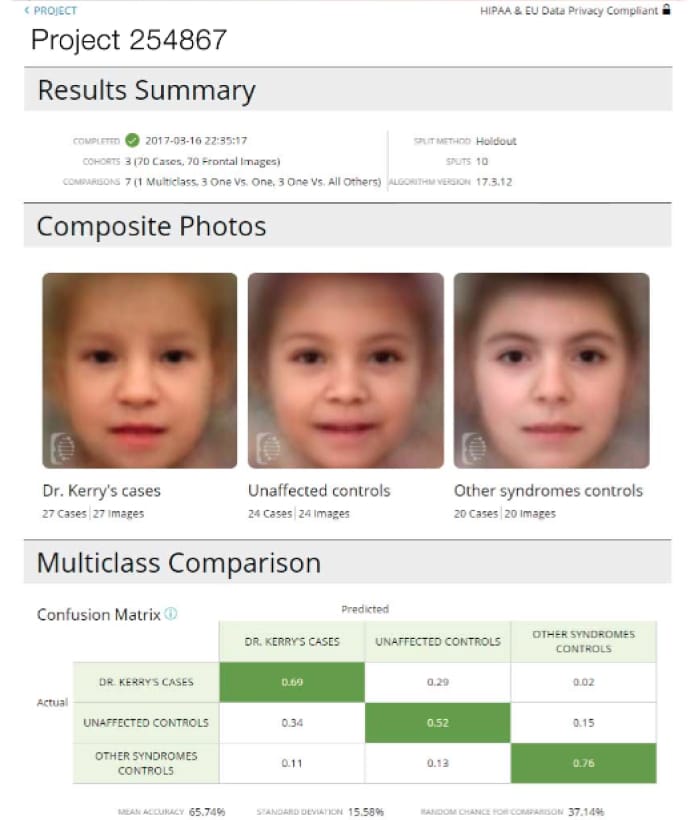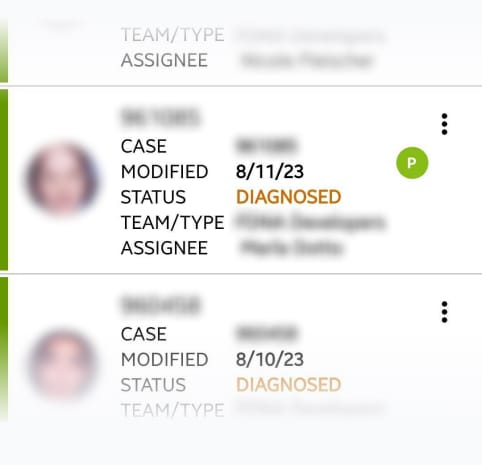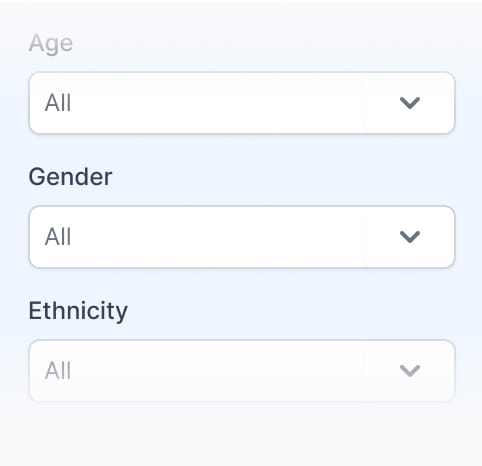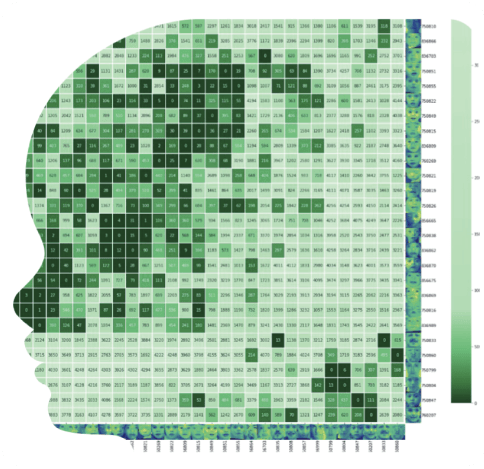
Researchers
FDNA offers researchers with better access to patients and providers
Questions & Outputs
Apply Artificial Intelligence to Enhance Your Studies
- Compare facial phenotypes among multiple research cohorts segmented by disease-causing mutations, phenotype severity, and other variables.
- Discover new syndrome phenotypes and compare to unaffected control groups.
- Quantify clinical features and view the distribution within cohorts.
- Use facial analysis to render a facial representation for a cohort.

a growing patient pool for your targeted therapy testing
How It Works
Explore how we support the diagnosis and treatment process with our AI tools, to provide you with access to qualified patients, valuable data and insights, for more research opportunities and more accurate research outcomes.
Thousands of patient inputs into our database – daily
Our data warehouse aggregates insights from thousands of users actively engaged with our decision support tools. This invaluable repository offers pharma companies access to a wealth of diverse perspectives and diagnostic scenarios, providing a deeper understanding of genetic conditions and treatment outcomes.

Filtered data for a more precise insights & results
Our Algorithms meticulously categorize and segment data according to various parameters, including symptoms, medical conditions, age, and geographical location. This structured organization enables us to discern meaningful patterns and correlations within the data, facilitating more precise diagnostic assessments and personalized treatment recommendations.

Apply artificial intelligence to enhance your studies
By leveraging this robust database, researchers can compare facial phenotypes among multiple research cohorts segmented by disease-causing mutations, discover new syndromes, quantify clinical features, and use facial analysis for better diagnosis. Approved researchers can engage in collaborative studies to yield greater genomic insights.

Gain Insights From Real-Life Data, Updated and Expanded Daily
Publications created using our research platform
Kušíková K, Šoltýsová A, et al. (2023) Prognostic Value of Genotype–Phenotype Correlations in X-Linked Myotubular Myopathy and the Use of the Face2Gene Application as an Effective Non-Invasive Diagnostic Tool. Genes. 2023; 14(12):2174.
Carrer, A., Romaniello, M. G., Calderara, M. L., et al. (2023).Application of the Face2Gene tool in an Italian dysmorphological pediatric clinic: Retrospective validation and future perspectives. American Journal of Medical Genetics Part A, 1–6.
Kasole Lubala T, Kayembe-Kitenge T, Mubungu G, et al (2023),Usefulness of automated image analysis for recognition of the fragile X syndrome gestalt in Congolese subjects, European Journal of Medical Genetics, Volume 66, Issue 9, 2023.
Wadman E, Fernandes E, Muss C, et al (2023) A novel syndrome associated with prenatal fentanyl exposure Genetics in Medicine Open, Volume 1, Issue 1,2023,100834,ISSN 2949-7744